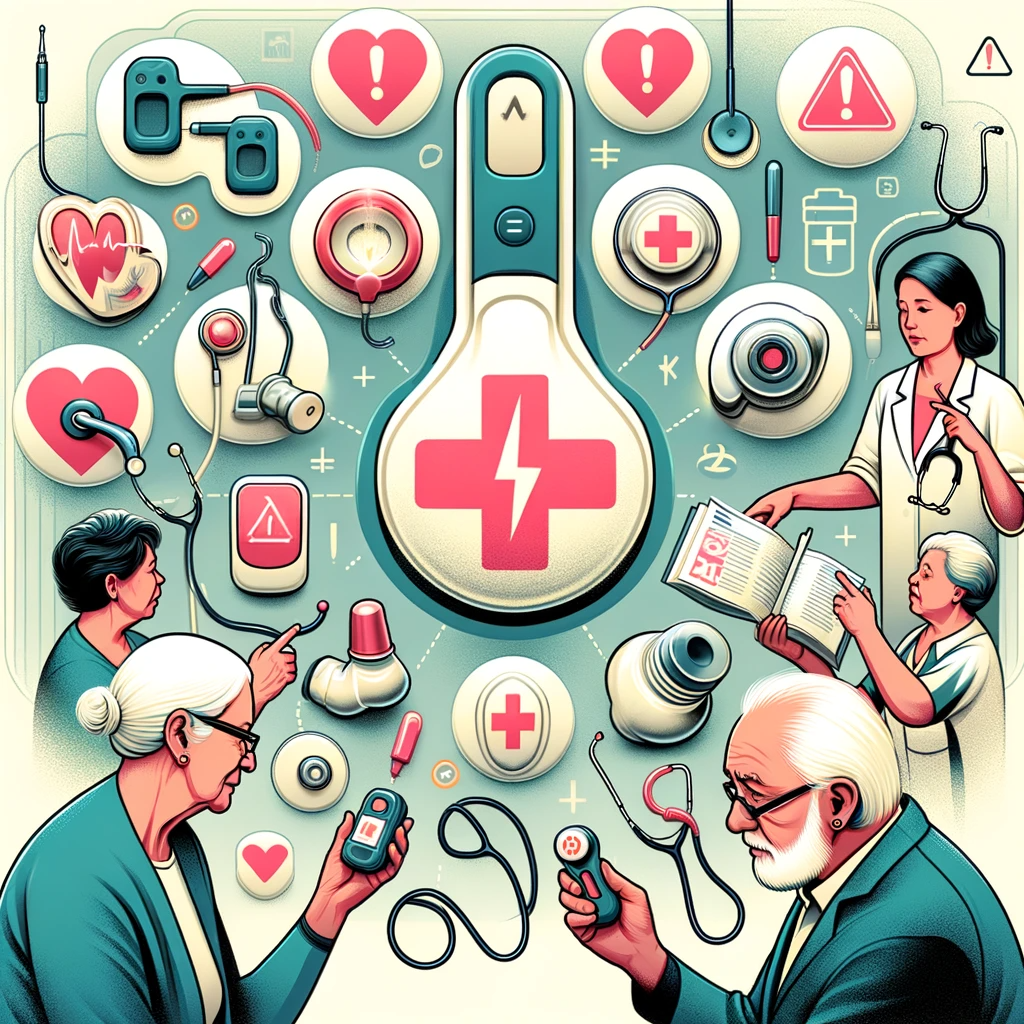Medical Recall: Navigating the Complex Landscape for Seniors and Their Caregivers
Explore the vital role of medical device recalls in safeguarding seniors' health. Learn about the recall process, from Class I to III, and how caregivers can manage these situations to ensure safety and well-being. Stay informed for health security.

Medical recalls are critical actions taken to protect public health from the risks posed by defective or potentially harmful medical devices. These recalls, organized and overseen by regulatory bodies like the Food and Drug Administration (FDA) in the United States, play a vital role in ensuring the safety and efficacy of medical devices. For seniors and their family caregivers, understanding the nuances of medical recalls, from Class I to Class III, is crucial for maintaining their health and well-being.
Understanding Medical Device Recalls
A medical device recall is initiated when a manufacturer or the FDA determines that a medical device is violating federal law and poses a health hazard. The recalls are categorized into three classes based on the severity of the risk they pose:
- Class I recall: This is the most serious type of recall where there is a reasonable probability that the use of, or exposure to, a violative product will cause serious adverse health consequences or death.
- Class II recall: These involve situations in which use of or exposure to a violative product may cause temporary or medically reversible adverse health consequences or where the probability of serious adverse health consequences is remote.
- Class III recall: This type of recall is issued when use of or exposure to a violative product is not likely to cause adverse health consequences.
The Recall Process and Strategy
The recall process typically involves several steps:
- Health Hazard Evaluation: The FDA or manufacturer assesses the risk posed by the product.
- Recall Strategy: A plan is formulated for the efficient recall of the affected product, including public notification and written notification to affected direct accounts.
- Correction or Removal Action: The defective or dangerous products are either corrected or removed from the market.
- Periodic Recall Status Reports: The recalling firm submits these to the FDA to update on the progress of the recall.
In some cases, the FDA may mandate a recall (mandatory device recall) if the manufacturer fails to voluntarily recall a product that poses a serious health risk.
This also applies for prescription medications.
The Impact on Seniors and Caregivers
Seniors are often more vulnerable to the adverse effects of defective medical devices due to age-related health issues. Therefore, staying informed about medical device recalls is crucial for caregivers and seniors.
Key Factors to Consider:
- Awareness of Recalled Products: Caregivers and seniors should regularly check the Weekly FDA Enforcement Report and other reliable sources for updates on medical device recalls.
- Understanding Recall Classifications: Knowing the class of recall can help in assessing the level of risk and the urgency of the situation.
- Communication with Health Providers: In the event of a recall, it's essential to consult with healthcare providers to understand the implications for the senior’s health and possible alternatives.
Best Practices for Managing Recalls:
Maintaining Records: Keep detailed records of all medical devices used, including lot numbers and manufacturer details.
Immediate Action: If a device used by the senior is subject to a recall, act immediately according to the recall strategy and seek medical advice.
Educating Seniors and Family Members: Ensure that everyone involved in the care of the senior understands the implications of medical recalls and the steps to take if affected.
FDA's Role and Enforcement
The FDA's role is critical in overseeing the recall process. They review the recall strategy, classify the recall, and monitor its effectiveness. The Weekly FDA Enforcement Report provides updates on ongoing recalls, market withdrawals, and safety alerts.
Implications for Consumers and Healthcare Providers
For patients, healthcare providers, and consumers, understanding recalls is essential for safety. They should stay informed through reliable sources and follow the guidance provided in recall letters or public notifications. Affected direct accounts, such as hospitals and pharmacies, play a crucial role in the distribution chain of recalls, ensuring proper disposition of recalled products.
Legal and Ethical Considerations
Manufacturers are obligated to make reasonable efforts to retrieve recalled products and mitigate health problems. Failure to comply can lead to legal actions, including product liability lawsuits. The Federal Food, Drug, and Cosmetic Act governs these regulations, ensuring that companies adhere to public health standards.
Conclusion
Medication and medical device recalls are an essential component of maintaining public health. They are complex processes that require the cooperation of manufacturers, healthcare providers, consumers, and regulatory bodies like the FDA. By understanding the nature and seriousness of recalls, the public can be better protected from health hazards posed by medical products.



